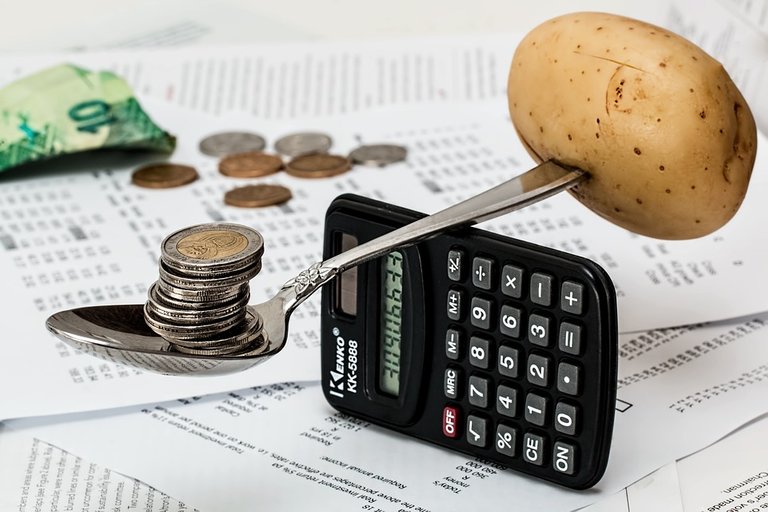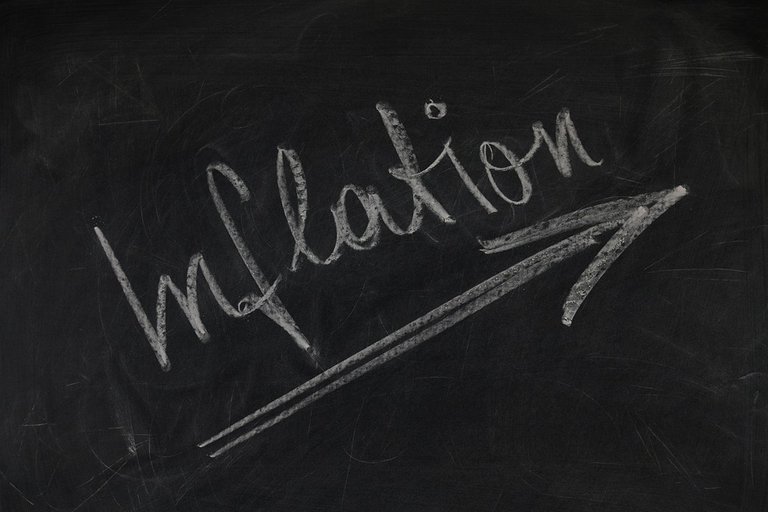Living For Today - Nigeria's Rising Inflationary rates
To give a clear illustration, answering the question of this Week's India Leo Contest, I would be using the state of my dear country, Nigeria, as a subject matter.
While the topic clearly states what the content of this write-up is, it is important to note that, the magnitude of what people are going through, cannot be contained in a single post, as things are really out of hand - thanks to the high inflation rate in the country,
In less than a year, the price of bread which was usually sold for #500, is now about #1000 - about a 100% increase, with a reduction in the quality of the bread. A bag of rice now goes for #45000. This same bag of rice was sold for less than #35000, a few months ago, and about 7 years ago, it was sold for less than #9000.
One becomes scared going to the market because of the possibility of goods he bought a few days ago in the market, doubling in price, making one not have a fixed budget while going to the market. A lot can happen in less than 24 hours. Prices of things are on progressive trends in my country.
The Meaning of Inflation
According to some renowned economists who have simplified the meaning of inflation to the lowest minimum, inflation simply means general rising prices for bread, rice, meat, fish, cooking oil, clothes, haircuts, and so on. In other words, it can also be seen as a significant and sustained rise in the general prices or a declining value of monetary units.
During this period, a fixed amount buys less quantity of goods and services. The real value of money is drastically reduced. Hence both the rich and the poor are affected, however, the poor suffer the most, due to their limited access to money. Furthermore, the rich — the high earners, find it difficult to save money, as they now spend times two of what they normally use in getting a particular good.
The purchasing power of people not only declines but they tend to entirely forfeit some goods, in order to be able to afford the basic ones.
Aside from the high prices of goods and services, inflation also renders the currency of a nation valueless. For instance, I remember around May this year, when I traveled to the federal capital Abuja, to the Egyptian embassy to legalize some of my documents, while applying for MSc. I needed to buy $ 100, with my local currency, so I spent about #59000 for that. Four months after when I went back to buy the same amount of dollars for my visa application, $100 is equivalent to #74000 - that's how valueless the naira has become.
A lot of businesses have been crippled as a result of this decline in the value of monetary units in Nigeria. A business that purchases in USD, will be at loss after selling their products, as they would have to spend more Naira in getting the same quantity of goods during purchase, as the naira-dollar exchange rates might have significantly changed. Hence business record more losses than profits on a daily basis.
The apex statistical body of the nation - The National Bureau of Statistics (NBS), has released the nation's inflation rate to be about 19.64% with an unemployment rate of 33.3% and a 22.8% under-employment rate. Click here for more data. While the government and its officials keep denying the figures, the suffering in the land consolidates the fact.
In summary, the best explanation of the meaning and implications of inflation can best be explained by the sufferings of the citizens in today's Nigeria. As the citizens are only living for today, with little or no hope of how tomorrow would be.


This post has been manually curated by @finguru from Indiaunited community. Join us on our Discord Server.
Do you know that you can earn a passive income by delegating your Leo power to @india-leo account? We share 100 % of the curation rewards with the delegators.
Please contribute to the community by upvoting this comment and posts made by @indiaunited.
Yay! 🤗
Your content has been boosted with Ecency Points, by @chidubem26.
Use Ecency daily to boost your growth on platform!
Support Ecency
Vote for new Proposal
Delegate HP and earn more